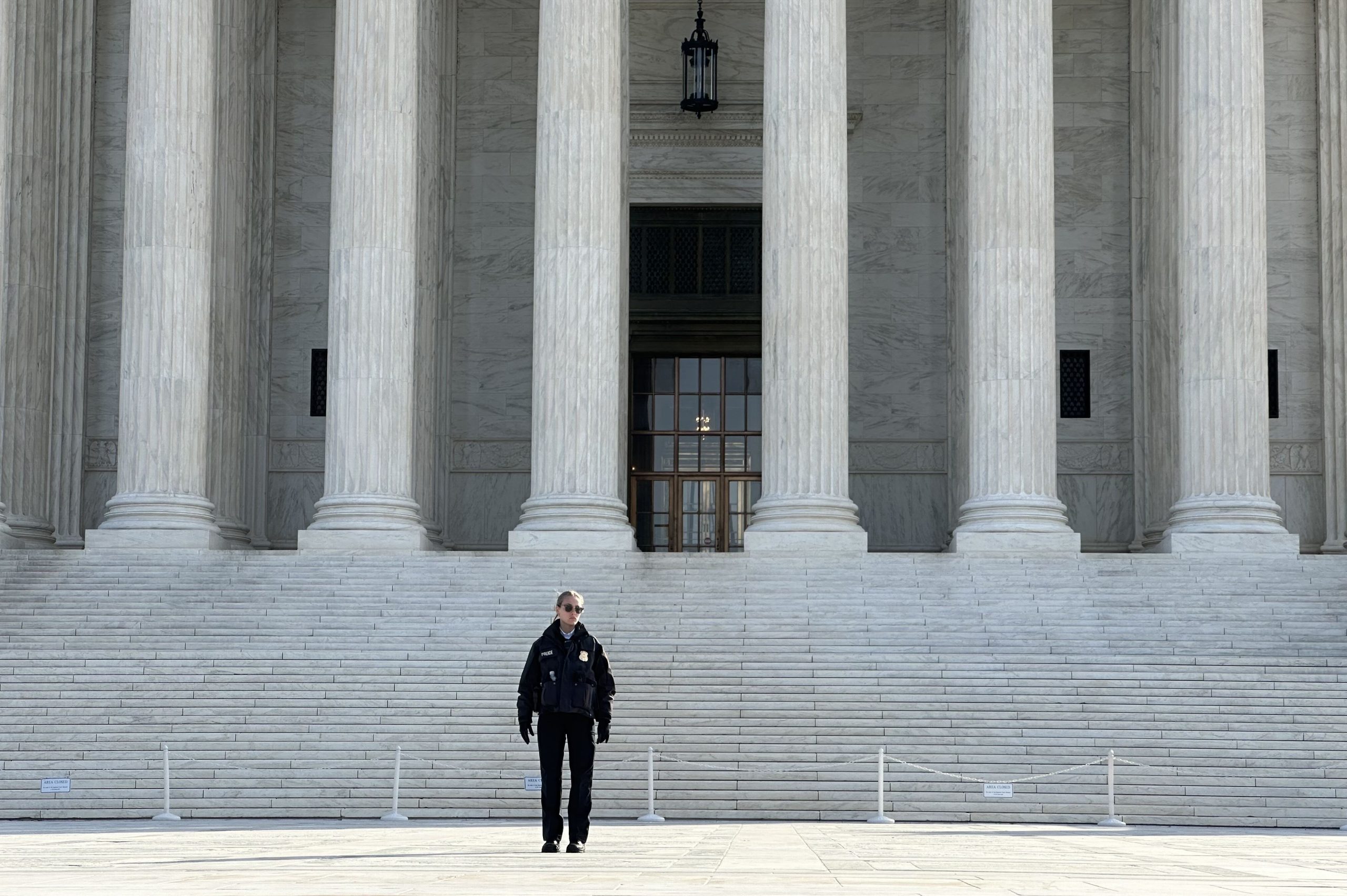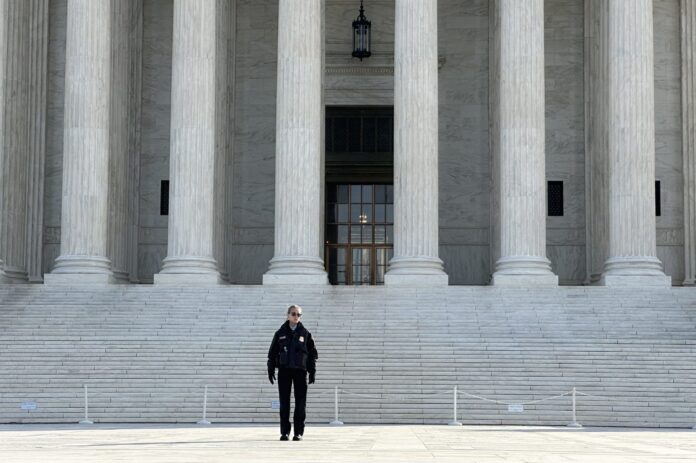SCOTUS NEWS
on Nov 25, 2024
at 10:49 am

The justices did not add any cases to their docket on Monday. (Katie Barlow)
The Supreme Court declined on Monday morning to hear the case of a Texas woman seeking compensation for damage to her home inflicted by a SWAT team pursuing a fugitive. The denial of review in Baker v. McKinney came on a list of orders from the justices’ private conference on Friday.
Justice Sonia Sotomayor, joined by Justice Neil Gorsuch, issued a statement regarding the court’s decision not to take up the case. She noted that the woman’s case presented an “important question that has divided the courts of appeals.â€
After adding two new cases, involving challenges to the constitutionality of parts of a program by the Federal Communications Commission to improve internet and phone service in underserved areas, the justices did not grant review in any additional cases on Monday.
The justices once again did not act on several high-profile petitions for review, involving issues such as the constitutionality of the admissions program for three of Boston’s elite public high schools, challenges to bans by Idaho and West Virginia on the participation of transgender girls and women on women’s sports teams, and a challenge to a Wisconsin school district’s plan to provide support to transgender and nonbinary students. They will meet again to consider new petitions for review on Friday, Dec. 6.
Police responded to Vicki Baker’s house in McKinney, Tex., when they learned that an armed fugitive was holding a 15-year-old girl inside. After the fugitive released the girl, a SWAT team used (among other things) explosive devices, toxic gas grenades, and an armored personnel carrier to try to subdue him and regain control of the situation. The fugitive had died by suicide, but the SWAT team caused extensive damage to the home, which was not covered by Baker’s homeowner’s insurance.
Baker filed a lawsuit against the city in federal court, arguing that the intentional destruction of her property violated the Constitution’s takings clause, which bars the government from taking private property for public use without paying just compensation. The district court awarded Baker $44,555 for damages to her home, as well as $15,100 for damages to her belongings.
The U.S. Court of Appeals for the 5th Circuit reversed that decision, and the full court of appeals declined to reconsider the reversal. While expressing “sympathy†for Baker, “on whom misfortune fell at no fault of her own,†the court of appeals reasoned that “as a matter of history and precedent, the Takings Clause does not require compensation for damaged or destroyed property when it was objectively necessary for officers to damage or destroy that property in an active emergency to prevent imminent harm to persons.â€
Baker came to the Supreme Court in June, asking the justices to take up her case. But after considering her petition for review at four consecutive conferences, the court turned her down.
In a statement spanning just over five pages, Sotomayor emphasized that the denial of review “expresses no view on the merits of†the 5th Circuit’s decision. She explained that relatively few courts of appeals have considered whether and to what extent the takings clause “applies to exercises†of the government’s police power. And most of those that have done so, she observed, issued their decisions before the 5th Circuit’s ruling in this case “that there is an ‘objectively necessary’ exception to the Takings Clause.†It would be better, she concluded, for more federal courts of appeals to consider this “important and complex question†before the Supreme Court steps in.
The justices also called for the federal government’s views in two cases involving liability for copyright infringement over the internet. There is no deadline for the government to file its briefs in the two related cases, Cox Communications v. Sony Music Entertainment and Sony Music Entertainment v. Cox Communications.
This article was originally published at Howe on the Court.Â





